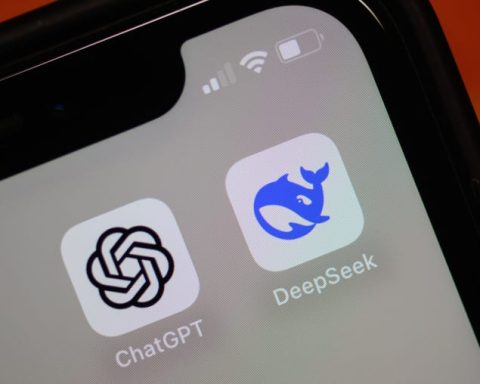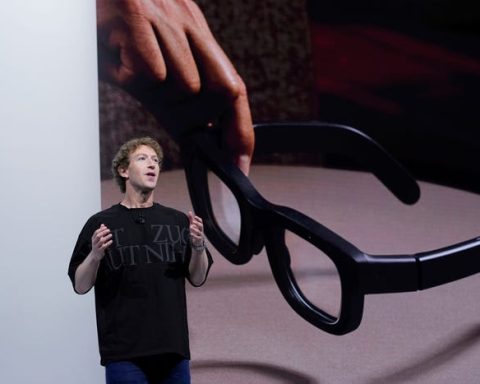From Academia to Innovation: How Two Chinese Women Developed Machine Learning Solutions to Combat Fraud
In 2006, Yinglian Xie completed her Ph.D. at Carnegie Mellon University, driven by a mission to understand and identify potential internet security threats through the analysis of seemingly unrelated events. Rather than pondering her future as an entrepreneur, Xie was intent on furthering her research. She joined Microsoft Research in Silicon Valley, where she collaborated with some of the finest minds in technology, including Turing Award winners.
Just weeks after, Fang Yu earned her Ph.D. from UC Berkeley, arriving at the same Microsoft lab. Hailing from close proximity in Suzhou, China, the two women quickly built a friendship and scientific partnership.
Fast forward to today, Xie, 48, and Yu, 46, have combined their expertise to co-found DataVisor, a thriving startup based in Mountain View, California. Since its inception in 2013, the company has made significant strides in the field of fraud detection, especially for financial firms. With Xie serving as CEO and Yu as Chief Product Officer, DataVisor reported a remarkable 67% revenue increase in 2024, reaching $50 million. This success earned the firm a spot on the Forbes Fintech 50 list, which highlights America’s most innovative fintech startups. Their client base now includes notable names like SoFi, Affirm, and Marqeta.
In the tireless battle against fraud, financial institutions employ a range of security measures. However, DataVisor specializes in proactive strategies, using “unsupervised” machine learning techniques to identify emerging fraud networks before significant damage occurs. These networks are adept at exploiting loopholes, such as credit bureau vulnerabilities, to launch fraudulent loan applications and deceive customers into purchasing counterfeit products. Traditional methods often rely on past data, leaving users vulnerable to crimes that have already occurred.
Xie emphasizes the limitations of traditional machine learning methods, which require prior data to improve detection capabilities. In contrast, DataVisor’s technology autonomously analyzes untagged data sets to identify patterns without human intervention. For instance, if a fraud ring targets a specific demographic, such as older customers tend to have higher transaction amounts and less digital knowledge, they may introduce suspicious activities that go unnoticed by conventional systems. DataVisor’s ability to connect the dots among various profiles enables real-time fraud detection, effectively blocking scams as they emerge.
Yu explains, “We excel at real-time clustering,” underscoring the ever-evolving nature of fraud strategies, which can shift minute by minute. Our algorithms adapt and respond to these changes, allowing us to stay ahead of coordinated fraud efforts.
Reports suggest that 2024 marks a new era of “Fraud As A Service,” with the typical number of incidents in coordinated attacks doubling from 4,000 to 8,000. The Federal Trade Commission reported fraud losses in the U.S. hit $10.4 billion in 2023, with trends indicating another record-setting year.
Xie and Yu’s backgrounds speak to their capability in developing robust fraud detection solutions. Xie was top-ranked among 140 computer science graduates from Peking University, while Yu interned with Microsoft Research Asia early in her studies at Fudan University in Shanghai, inspiring her path to pursue a Ph.D.
The duo relocated to the U.S., attracted by its reputation for advancing technology, and after obtaining green cards, became citizens while contributing extensively to Microsoft’s research efforts. Their publication records were impressive, with citations in the thousands.
Despite their success, the duo felt an entrepreneurial spirit calling. Xie notes, “We were waiting for others to realize our ideas, and it became frustrating after years of publishing but not translating ideas into real-world applications.” This ambition led them to start their own company in 2013.
Initial funding came from personal savings and industry connections, securing clients like Yelp and the Chinese app Momo. They raised a $14.5 million Series A round in 2015. DataVisor grew rapidly, receiving a $40 million investment in 2018, resulting in a valuation of $390 million by Pitchbook in 2019.
However, market conditions shifted, prompting DataVisor to refocus. Xie explains that their previous clientele, primarily tech companies, faced challenges in offering promotional incentives, driving DataVisor to pivot towards financial institutions undergoing digitization.
This adaptation required a significant overhaul of their product line to provide comprehensive fraud prevention services. DataVisor raised another $40 million in December 2022, with a more conservative valuation of $260 million, signaling changes in investors’ sentiment.
Notably, Xie reports that the pivot has proven beneficial, with DataVisor now servicing 50 clients, including Bye-now, Pay-later companies like Affirm and digital banks like SoFi. This transformation aims for an all-encompassing relationship involving user onboarding and transaction monitoring, with subscription services tailored to handle various levels of customer interactions.
As they continue to refine their technology and expand their impact, Xie and Yu remain committed to staying at the forefront of fraud detection. The ethos they developed in academia flourishes in their entrepreneurial journey, blending innovation with a mission to protect consumers from financial threats.










